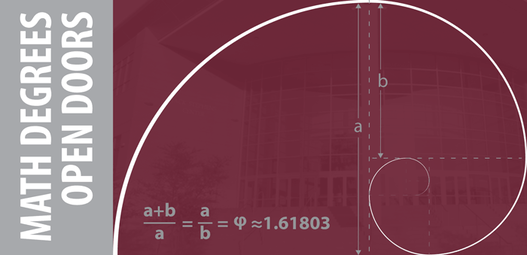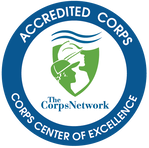|
People who love working with numbers and formulas are naturally attracted to the mathematical branch of STEM. Unlike students entering the realm of science and engineering, those interested in a numbers oriented career have far fewer undergraduate degree options from which to choose.
An advanced degree and/or specific certification(s) may be warranted in some roles after the completion of an initial four year degree; those with a desire to work within academia or the governmental sector often pursue doctoral degrees. Accountants, bookkeepers, logisticians and secondary level mathematics instructors, on the other hand, are likely to qualify for a plentiful number of employment opportunities with their mathematically oriented bachelor's degree. Choosing math for your undergraduate degree is also an excellent choice if you're unclear about your long term career goals. Many graduate and professional programs look favorably upon applicants with a bachelor's in math; such a degree is also attractive to many employers in science or business related fields. Completing one or more summer internships during your initial four years of study can help clarify your long term career options; as a bonus, declaring math as your major will open doors to a wide variety of internship opportunities early in your college career. Selecting a Mathematically Oriented Bachelor's Degree Students interested in pursuing a mathematically oriented bachelor's degree generally have only a handful of tracks to follow during the first four years of their educational journey. For example, math students at the University of Arizona can select either a B.S. or B.A. in Mathematics or Statistics & Data Science, giving them a total of four degree options (compared to dozens of options in science or engineering!). Each of these four degree paths have more similarities than differences and the first few years of coursework will be identical in most cases. B.S. degree holders are slightly better prepared for science and/or numbers oriented careers while those with B.A. degrees will more easily transition into law school and/or other non scientific careers, yet all math degrees form an excellent base for students who are unclear about their future goals. A math degree can open doors to advanced courses of study in virtually any field, as many graduate and professional programs (including medical and law schools) look favorably upon applicants who've earned a bachelor's in mathematics. In fact, nearly half of all math majors end up completing an advanced degree! Career Options for Four Year Math Degree Holders In most geographic locations, a student who wishes to begin a career after completing a four year math degree will have a wide variety of options that provide comfortable salaries, room for growth and high levels of job satisfaction. Math majors often fill roles as bookkeepers, accountants, analysts, administrators and beyond and some are drawn to the realm of secondary education where their skills are in high demand. Each state has its own set of requirements for certification of high school math teachers, yet the need for these teachers is so great that individuals with any math related degree will usually have the option to follow a straightforward pathway towards certification. As an alternative to obtaining a bachelor's in math, future teachers can obtain an educational degree with a mathematical focus. It's important to consider, however, that an educational degree will not be viewed as favorably as a mathematics degree outside the realm of education and is therefore not recommended for those with unclear career goals. Internships as Tools for Math Majors Many math majors choose their course of study to create a solid base from which to continue an advanced educational journey or to open doors to a variety of career options. Internships provide the perfect complimentary experience for these students, as their flexible mathematical backgrounds give them the option of "trying out" virtually any role they find interesting. Math majors will likely qualify for many internships in science or business related fields and some will take advantage of this flexibility by applying for summer positions as soon as they've completed their first year as an undergraduate. Every internship you complete will provide invaluable work experience to narrow down your future career options; if, during an internship you discover that certain career paths no longer appeal to you, you'll still have work experience to add to your resume and will have made professional connections that will serve you well in years to come. Check out G.E.M. Environmental's summer internships to explore the realm of Earth Science while getting paid and enjoying the beauty of the southwest! G.E.M. Environmental is committed to supporting underrepresented STEM students through educational and financial support. In addition to field experiences and summer internships, we offer scholarships which can be used to fund educational programs, purchase books, or pay down accumulated student loan debt. We'll be reviewing the next batch of applications in March of 2019. Our blog entries are intended to help STEM students obtain their dream career. We encourage you to add your comments below; if there are any particular topics you'd like to see addressed in future posts, please share! Also be sure to scroll down to the bottom of our website and sign up for our newsletter (under "Follow Us") so you can stay up to date about our upcoming programs and opportunities! References https://www.collegexpress.com/interests/science-and-engineering/articles/studying-sciences/how-choose-stem-major-all-your-different-options/ https://www.monster.com/career-advice/article/best-jobs-math-majors-0417 https://study.com/how_to_become_a_high_school_math_teacher.html https://www.trade-schools.net/articles/jobs-for-math-majors.asp https://www.math.arizona.edu/academics/undergrads/requirements/majors |
Categories
All
Archives
June 2024
|
G.E.M. Environmental NFP
Geology - Engineering - Minerals - Environmental - Not for Profit
Geology - Engineering - Minerals - Environmental - Not for Profit
Community Partners
|
Programs
|
Get Involved
|
About
|
Follow Us
|
Sponsors & Donors
|
© COPYRIGHT 2017 - 2023. ALL RIGHTS RESERVED. G.E.M. Environmental NFP
GEM Environmental, GEM4STEM, GEM Corps, and Charity Rocks are all Registered Trademarks of G.E.M. Environmental NFP.
Any and all use of Trademarks or Copyrights must be authorized.
GEM Environmental, GEM4STEM, GEM Corps, and Charity Rocks are all Registered Trademarks of G.E.M. Environmental NFP.
Any and all use of Trademarks or Copyrights must be authorized.

 RSS Feed
RSS Feed


